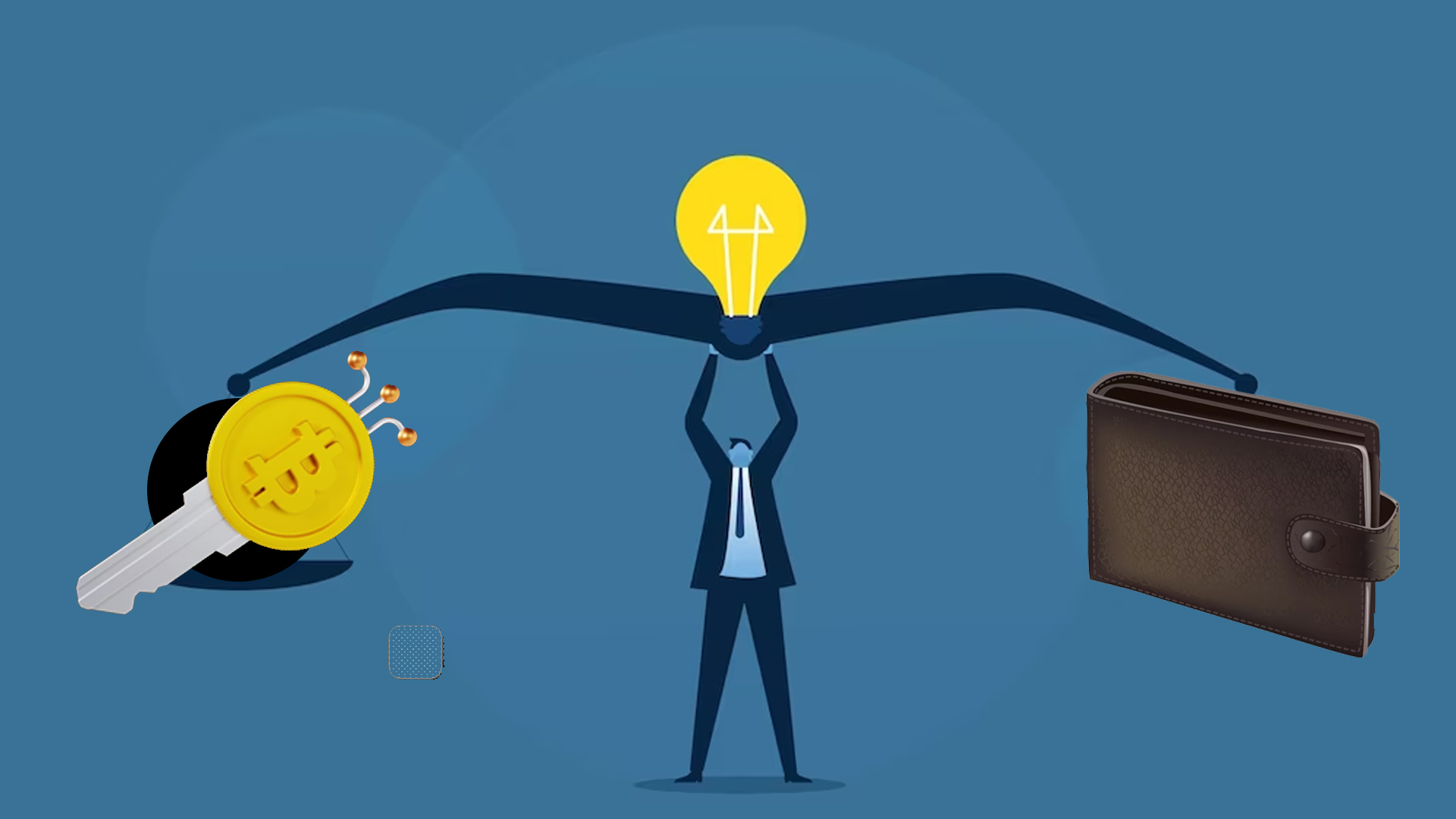- Keys are alphanumeric codes that are used in cryptography to work as passwords.
- Wallet addresses are generated sets of alphabets and numbers used to send and receive funds.
Keys and wallets are two of the major elements in the world of cryptocurrency. Transactions are done with their help. In the blockchain ecosystem, where everything is completely decentralized, there is also the threat of scams and fraudulent activities. These elements of blockchain not only help a user send or receive funds but also make the system secure by encrypting the unique identity of an individual.
What is a Wallet Address?
A crypto wallet works as a middleman between the crypto holder and their digital assets, whether it’s a cryptocurrency or any non-fungible token (NFT). It serves reliability and control anonymously, which helps users access the blockchain features while exploring the full potential of decentralized finance (DeFi) apps. These wallets provide digital identity via alphanumeric keys, which are encrypted by cryptography. This helps establish ownership over digital assets.
These wallets provide uniqueness with encrypted private keys. A unique address called the ‘public address’ is provided to the individuals to access crypto wallets and enable their digital identity. This address is further derived from the public key and can be shared publicly to receive funds like cryptocurrency or any other digital asset from other users. Unique public addresses help to enhance privacy and security within a decentralized ecosystem.
Public and Private Keys
Private keys are encrypted codes used to access a crypto wallet and validate transactions. It consists of long strings of alphabets and numeric characters that are correlated to the public key. It works as a password required for accessing funds. Private keys are meant to be secured, as sharing them is not a good idea in any case. If a private key is shared with anyone, cryptocurrency funds become vulnerable to cyberthreats.
The private key is similar to the ATM PIN of a bank account. Each wallet consists of multiple unique private keys. Wallet owners use it to claim ownership of funds and transaction activities.
On the other hand, Public keys are allowed to be shared publicly and are used to verify a transaction’s authenticity. It proves that a transaction has been signed by the owner of a particular digital asset. This key is derived from a private key using a mathematical function. Encrypted code is used to code messages and perform the verification of digital signatures. A public key is not similar to a wallet address.
How Do Keys and Wallets Work Together?
We get to know about private keys, public keys and wallet addresses; now questions arise about how they work together. When creating a crypto wallet via a wallet provider, users receive all these components. When a crypto wallet is created, individuals also create addresses and a private key. A secret phrase, also named ‘seed phrase,’ is meant to be kept safe. This secret phrase helps a user retrieve a crypto wallet in case someone loses or forgets their private key.
Further, a public key is used to verify the ownership of a wallet address so they can send or receive crypto funds. A public key is not used personally when a transaction is made. A wallet address is provided to the sender if someone is willing to receive a fund. Similar to that, one needs the wallet address of a recipient if they want to transfer any crypto asset.
Conclusion
These concepts seem complex, but once a user gets used to them, they can leverage their advantages. With emerging blockchain technologies, vast opportunities are introduced, but one cannot neglect the fact that cyberthreats are increasing. These features, or encryption, help to keep their account secure and also provide them with verified and authenticated transactions in terms of cryptocurrency. Research all the consequences related to a crypto wallet before creating one.
